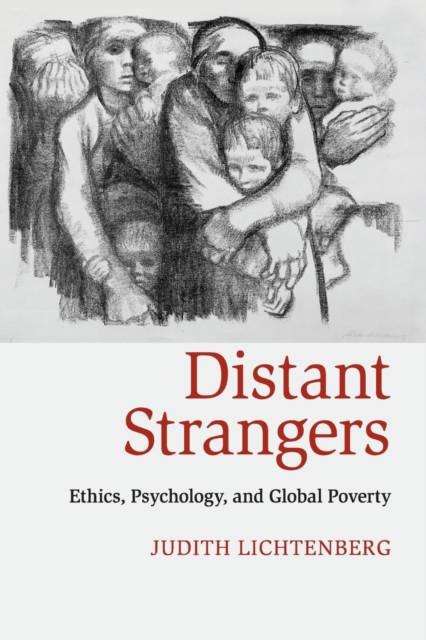
Door een staking bij bpost kan je online bestelling op dit moment iets langer onderweg zijn dan voorzien. Dringend iets nodig? Onze winkels ontvangen jou met open armen!
- Afhalen na 1 uur in een winkel met voorraad
- Gratis thuislevering in België vanaf € 30
- Ruim aanbod met 7 miljoen producten
Door een staking bij bpost kan je online bestelling op dit moment iets langer onderweg zijn dan voorzien. Dringend iets nodig? Onze winkels ontvangen jou met open armen!
- Afhalen na 1 uur in een winkel met voorraad
- Gratis thuislevering in België vanaf € 30
- Ruim aanbod met 7 miljoen producten
Zoeken
€ 50,45
+ 100 punten
Uitvoering
Omschrijving
What must affluent people do to alleviate global poverty? This question has occupied moral and political philosophers for forty years. But the controversy has reached an impasse: approaches like utilitarianism and libertarianism either demand too much of ordinary mortals or else let them off the hook. In Distant Strangers Judith Lichtenberg shows how a preoccupation with standard moral theories and with the concepts of duty and obligation have led philosophers astray. She argues that there are serious limits to what can be demanded of ordinary human beings, but this does not mean we must abandon the moral imperative to reduce poverty. Drawing on findings from behavioral economics and psychology, she shows how we can motivate better-off people to lessen poverty without demanding unrealistic levels of moral virtue. Lichtenberg argues convincingly that this approach is not only practically, but morally, appropriate.
Specificaties
Betrokkenen
- Auteur(s):
- Uitgeverij:
Inhoud
- Aantal bladzijden:
- 285
- Taal:
- Engels
Eigenschappen
- Productcode (EAN):
- 9780521124621
- Verschijningsdatum:
- 9/12/2013
- Uitvoering:
- Paperback
- Formaat:
- Trade paperback (VS)
- Afmetingen:
- 152 mm x 226 mm
- Gewicht:
- 408 g

Alleen bij Standaard Boekhandel
+ 100 punten op je klantenkaart van Standaard Boekhandel
Beoordelingen
We publiceren alleen reviews die voldoen aan de voorwaarden voor reviews. Bekijk onze voorwaarden voor reviews.











